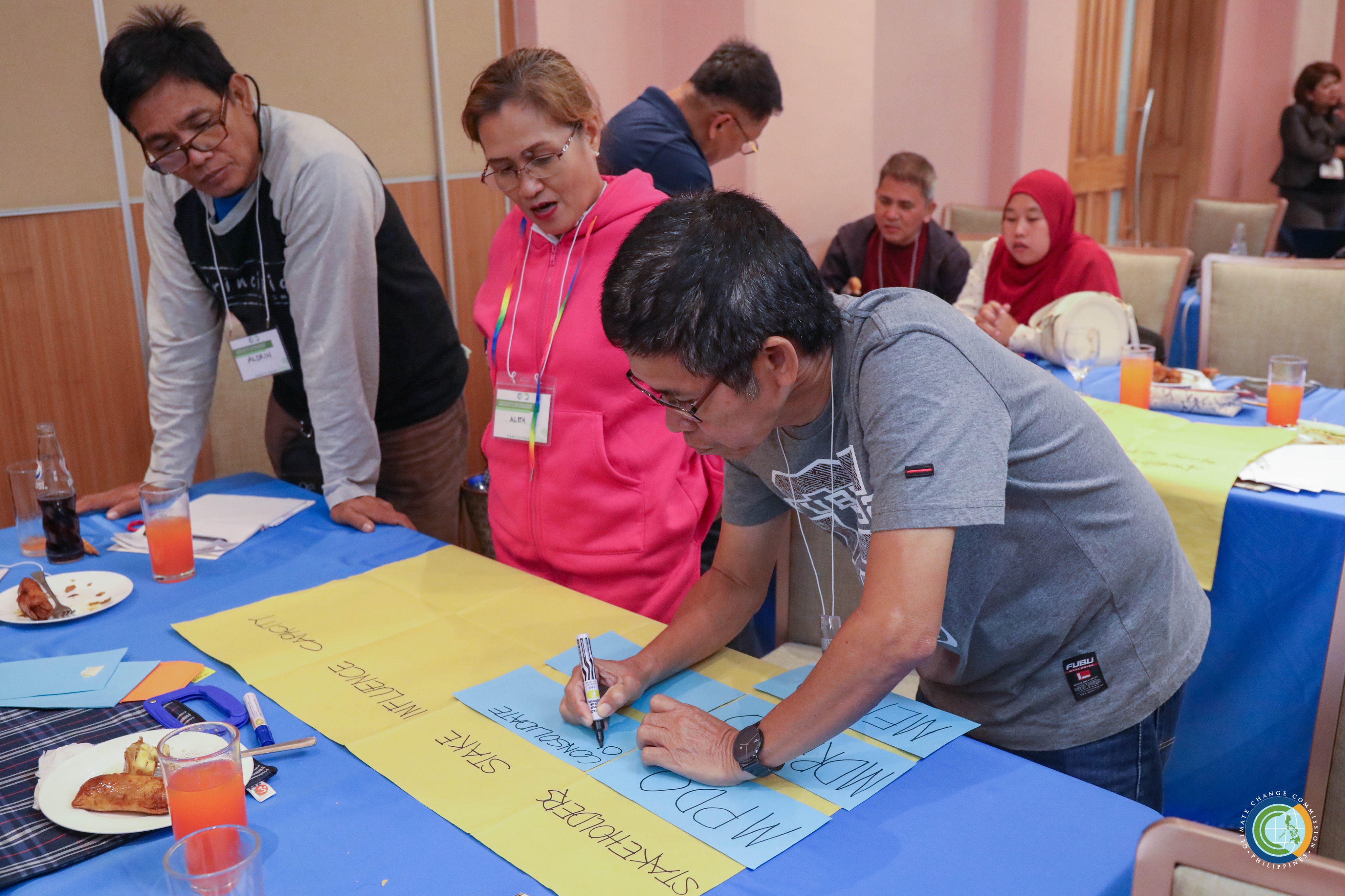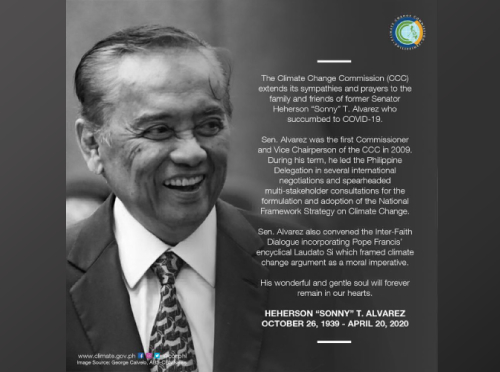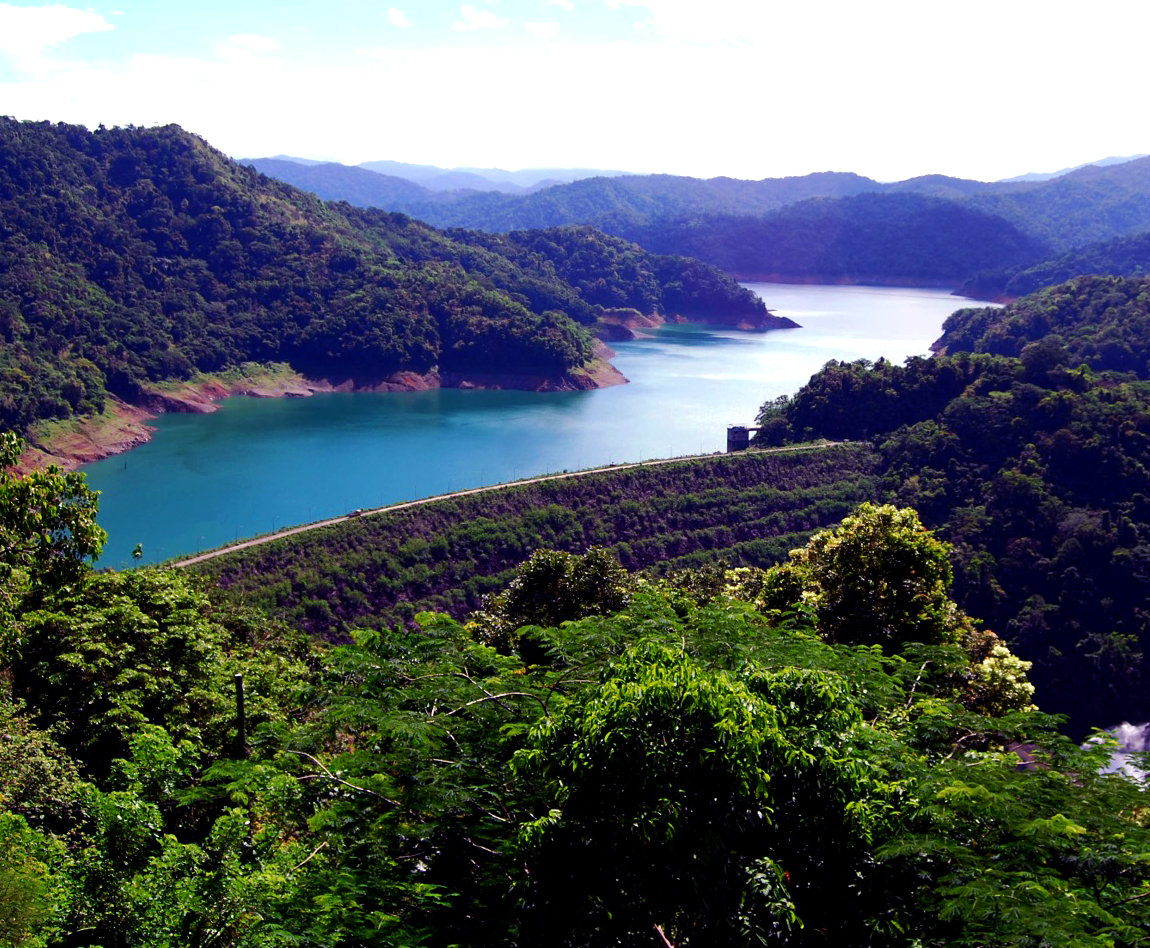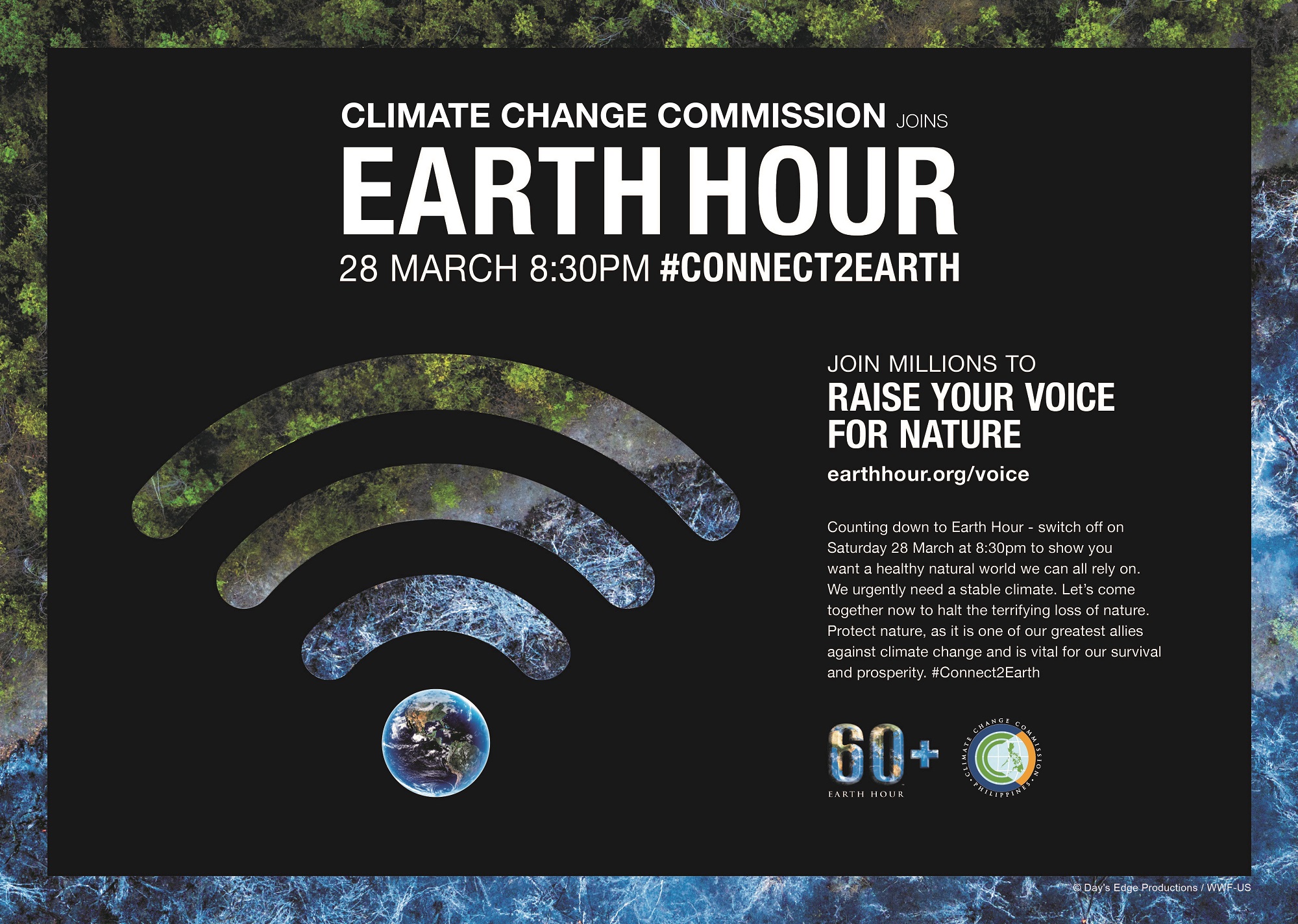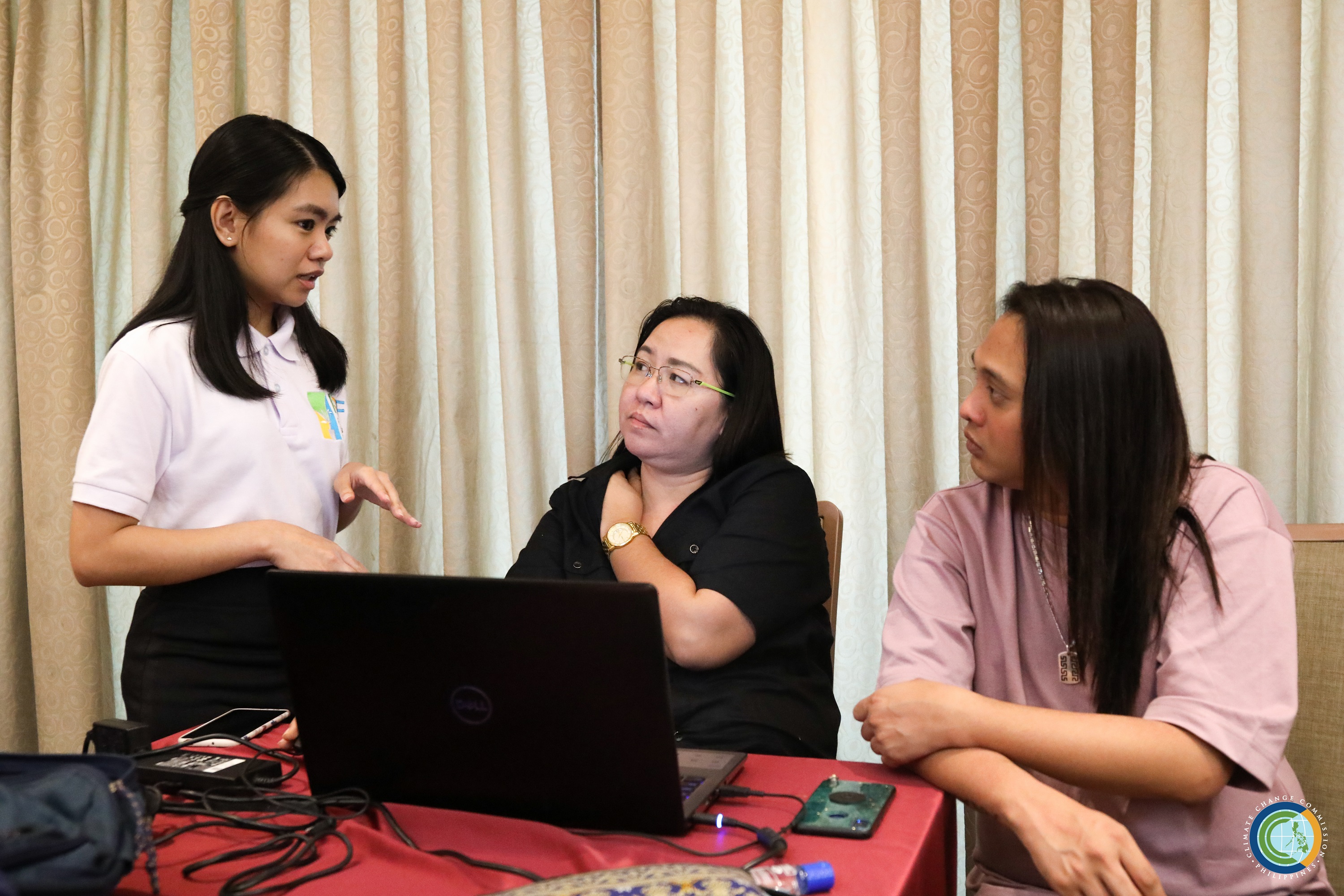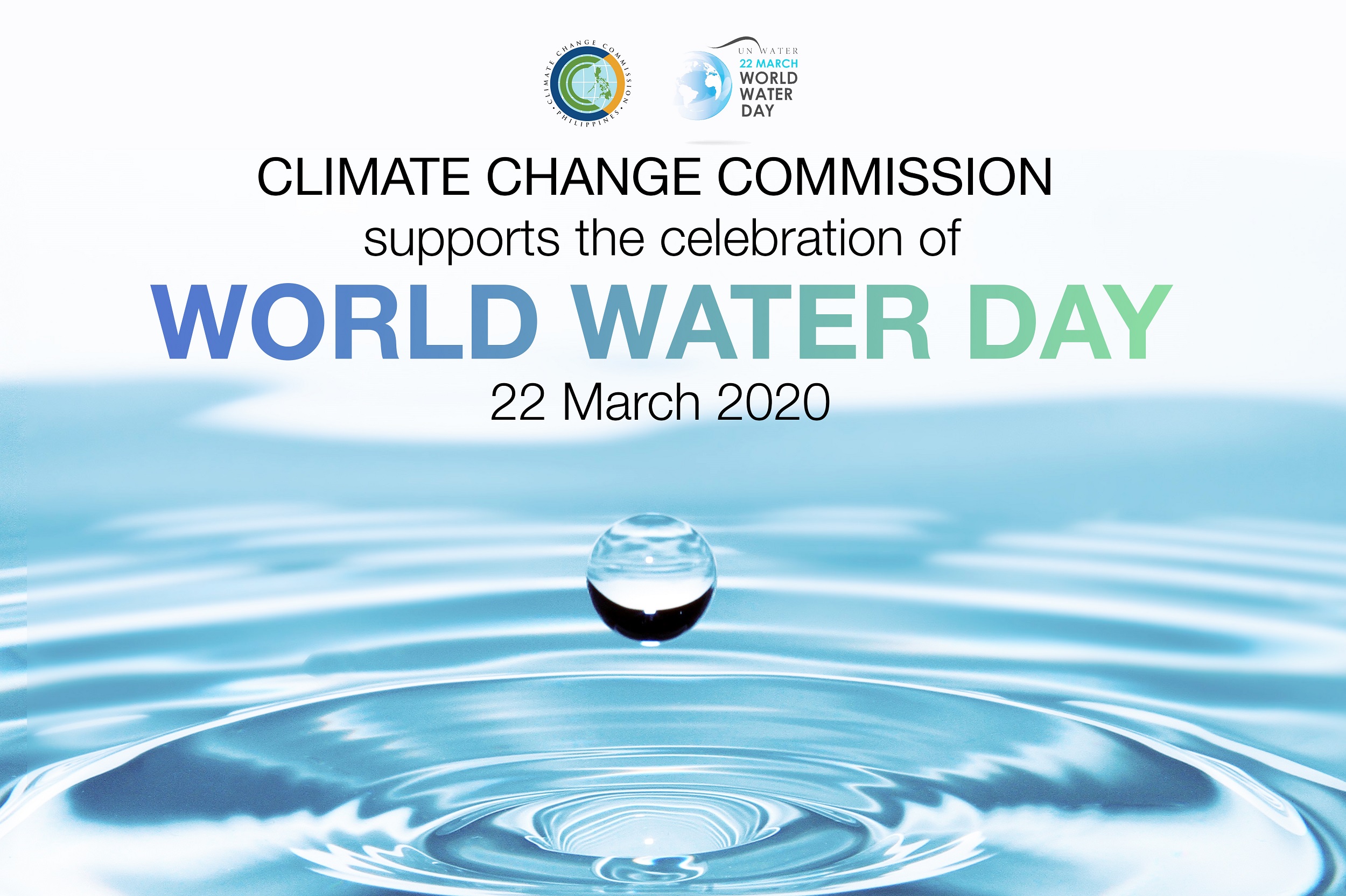MANILA, 20 April 2020 — With the extension of the Enhanced Community Quarantine (ECQ) until the end of this month, the Climate Change Commission (CCC) highly encourages students at home to enroll for free in climate change and environmental online courses.
The CCC noted the need to vigorously promote environmental education, pursuant to Republic Act No. 9512 or the National Environmental Awareness and Education Act of 2008.
The climate body added that through environmental education, our citizens, most especially the youth, would realize the intrinsic relationship of humanity with nature, reflect on the unique role of all living species, and appreciate the linkages of ecosystems services to the public health crisis caused by the coronavirus disease (COVID-19).
According to the World Health Organization (WHO), animals are the likely source of COVID-19, which has infected almost two million people worldwide to date and placed a strain on the global economy. Based on the report of the WHO-China Joint Mission on Coronavirus Disease 2019, COVID-19 has a genome identity of 96% to a bat SARS-like coronavirus and 86%-92% to a pangolin SARS-like coronavirus.
In this crucial time of a pandemic, the climate body emphasized that these online courses could be a channel for raising awareness on the latest science and good practices on addressing climate change and disaster impacts, as well as on national and community-led action worldwide.
Among the online courses that are available for free during the ECQ are the following:
• Environmental security and sustainable peace by UN Environmental Programme (UNEP) – This massive online course provides an in-depth introduction to the multiple roles that natural resources and the environment play in the onset, escalation, and resolution of, and recovery from, violent conflicts. Many of the considerations and approaches of this course are also relevant to understanding and addressing social conflicts around natural resources and the environment.
The course can be accessed through this link:
https://sdgacademy.org/course/environmental-security-and-sustaining-peace/
• Disasters and ecosystems: Resilience in a changing climate by UNEP – The course is about the inter-linkages between ecosystems, disaster risk reduction and climate change adaptation. It gives an overview of tools, approaches, global policy frameworks, institutional arrangements, and a hands-on approach to implementing ecosystem-based disaster risk reduction.
The course can be accessed through this link: https://courses.adpc.net/
• Urban Metabolism for Policy Makers by UNEP and GI-REC (Global Initiative for Resource Efficient Cities) – This course targets policymakers interested in urban metabolism and how its understanding can help in developing more comprehensive policies to meet the Paris Agreement targets.
The course can be accessed through this link:
https://metabolismofcities.org/resources/mooc
• Introduction to Life Cycle thinking by Life Cycle Thinking by UNEP –This E-Learning Module Kits draws in materials from the Life Cycle Initiatives and gives participants an overview of approaches on how to assess the impacts of any given sustainability issue considering all of its life cycle stages. The module provides an introduction to life cycle thinking and discusses its applications to public policies, businesses, and consumers.
The course can be accessed through this link:
https://www.learnlifecycle.com/courses/lct
• Wheels of Metals: Urban Mining for Circular Economy by UNEP – This course explores the challenges related to metals supply, including their scarcity and environmental impacts, and the conditions and consequences of a circular economy for metals, based on the reports of the International Resource Panel.
The course can be accessed through this link:
https://www.my-mooc.com/en/mooc/metals/
• Achieving Sustainable Development by Trinity College Dublin – The course provides key considerations on SDGs including peace, healthcare, sustainable cities, and water and sanitation. Learners will examine the ways in which development can truly be sustainable and actual impacts in communities.
The course can be accessed through this link:
https://www.futurelearn.com/courses/achieving-sustainable-development
• Concepts in Sustainable Development: An Introduction to the Key Issues by University of Leicester – In this course, learners will study the conceptual foundation of sustainable development related complex problems.
The course can be accessed through this link:
https://www.futurelearn.com/courses/sustainability
• Environmental Justice by University of East Anglia – The course provides understanding on how climate change, biodiversity loss, and deforestation affect people. It also explores the topic of justice in environmental management.
The course can be accessed through this link:
https://www.futurelearn.com/courses/environmental-justice
• Ecology and Wildlife Conservation by University of Leeds – This course explores the study of ecosystems and conserving the world’s biodiversity.
The course can be accessed through this link:
https://www.futurelearn.com/courses/ecology-and-wildlife-conservation
• Environmental Challenges: Scarcity and Conflict in the Natural Environment by University of Leeds – This course explores aspects of conflict and resource scarcity, and applies these to decision-making and negotiation skills.
The course can be accessed through this link:
https://www.futurelearn.com/courses/environmental-ethics-scarcity-conflict
• Environmental Challenges: Human Impact in the Natural Environment by University of Leeds – This course explores approaches to the causality and dynamics of environmental systems, and how humans are involved and affected by these systems worldwide.
The course can be accessed through this link:
https://www.futurelearn.com/courses/environmental-ethics-human-impact
• The Challenge of Global Water Security by Cardiff University – This course provides an introduction to the challenges of water security and how human activity and environmental issues affect water resources.
The course can be accessed through this link:
https://www.futurelearn.com/courses/global-water-security
• Future Food: Sustainable Food Systems for 21st Century by University of Exeter – This course provides potential solutions to food shortage in the context of the global food system.
The course can be accessed through this link:
https://www.futurelearn.com/courses/future-food
• Explore How Farmers Produce Food Sustainably by University of Reading – This course provides a better understanding of food sources and the challenges that many farmers face to produce food sustainably.
The course can be accessed through this link:
https://www.futurelearn.com/courses/explore-how-farmers-produce-food-sustainably
• Farm to Fork: Sustainable Food Production in a Changing Climate by Queen’s University Belfast and Universita Degli Studi Di Torino – The course provides information on food and agriculture in the modern world. Learners will learn about the complexity of the global food supply chain, the vulnerability of the food industry to emerging threats, and solutions to stopping these threats early. The learners will also consider the issues surrounding production of food of animal origin.
The course can be accessed through this link:
https://www.futurelearn.com/courses/sustainable-agriculture-in-a-changing-environment
• Climate Change 101: Understanding Climate Change in Agri-Fisheries by Department of Agriculture – Agricultural Training Institute (DA-ATI) – The course aims to enhance knowledge and understanding on climate change in the Philippine agriculture and fisheries sector. The course consists of two modules – i) Overview of Climate Change and ii) Climate Change Adaptation and Mitigation for Agriculture and Fisheries.
The course can be accessed through this link:
http://e-extension.gov.ph/elearning/course/view.php?id=212
• Introductory e-Course on Climate Change by One UN Climate Change Learning Partnership (UN CC:Learn) – The course provides basic concepts on climate change through six modules – Climate Change Science, International and Policy Framework for Climate Change, Climate Change Adaptation, Climate Change Mitigation, Climate Change Finance, and Planning for Climate Change.
All modules are available on portable document format (PDF) and PowerPoint Presentation for offline study or training purposes. The modules also include links to other UN resources on climate change, which provides a gateway to more in-depth and specific information.
The course can be accessed through this link:
https://unccelearn.org/course/view.php?id=7&page=overview
• Children and Climate Change by UN CC:Learn – The course presents the main impacts of climate change to children and youth and explores ways to strengthen their resilience. The course consists of five modules – The Impact of Climate Change on Children, Strengthening Children’s Resilience to Climate Change, The Benefits of Climate Change Mitigation for Children, Empowering Children to Act on Climate Change through Education, and A Climate Change Agenda for Children. Once completed the learners will receive a certificate of completion.
The course can be accessed through this link:
https://unccelearn.org/course/view.php?id=23&page=overview
• Human Health and Climate Change by UN CC:Learn – The course provides an introduction to the health challenges and opportunities associated with climate change. The course consists of one module divided into three sections – Climate Change and Human Health, Adaptation: Building Health Systems’ Resilience to Climate Change, and the Mutual Benefits of Climate Change Mitigation and Health Policies.
The course can be accessed through this link:
https://unccelearn.org/course/view.php?id=20&page=overview
• Climate Change in Practice by Global Citizenship Education (GCED) Online Campus – The course comprises four sessions – Introduction to Climate Change, Anthropogenic Drivers of Climate Change, Societal and Environmental Implications of Climate Change, and International Efforts to Climate Change. To effectively assist learners’ understanding and learning progress, a set of quizzes is offered. Upon successful completion of the course, a certificate is provided.
The course can be accessed through this link: http://www.gcedonlinecampus.org/course/view.php?id=39
Other free online courses on climate change offered by UN CC:Learn can be accessed through this website: https://www.uncclearn.org/learning-resources
Although these online courses give more flexibility while at home, CCC emphasized that these classes keep the masses away from a dangerous epidemic of misinformation which is quickly spreading along with the COVID-19 disease. The agency said that with well-informed citizens, we could bounce back from this challenge.
April 19, 2020 Sunday

